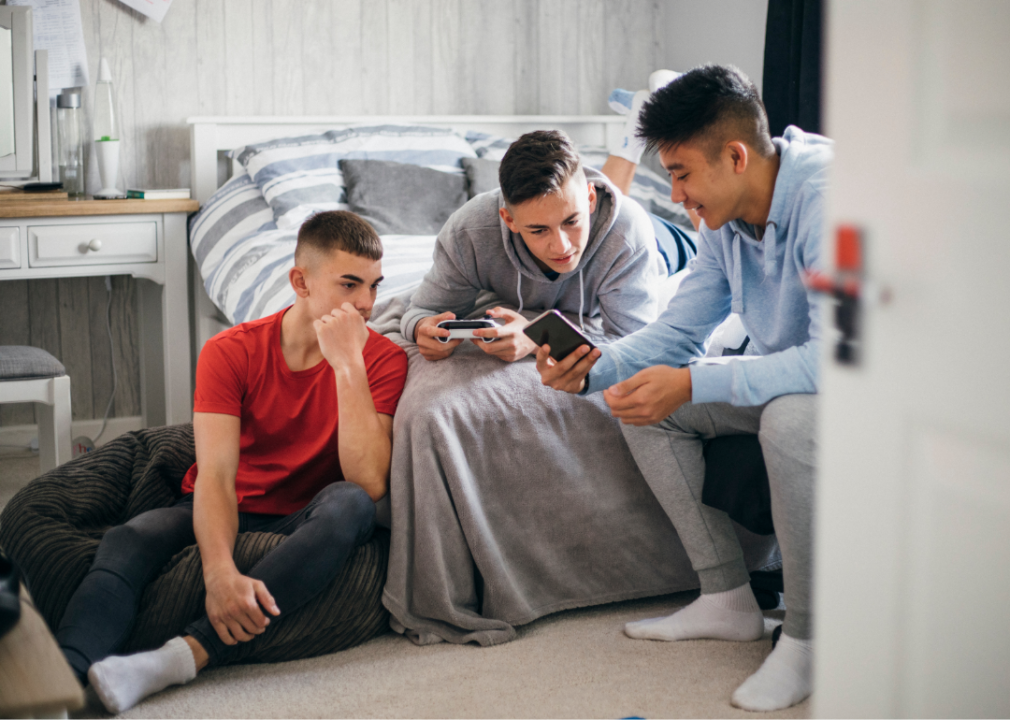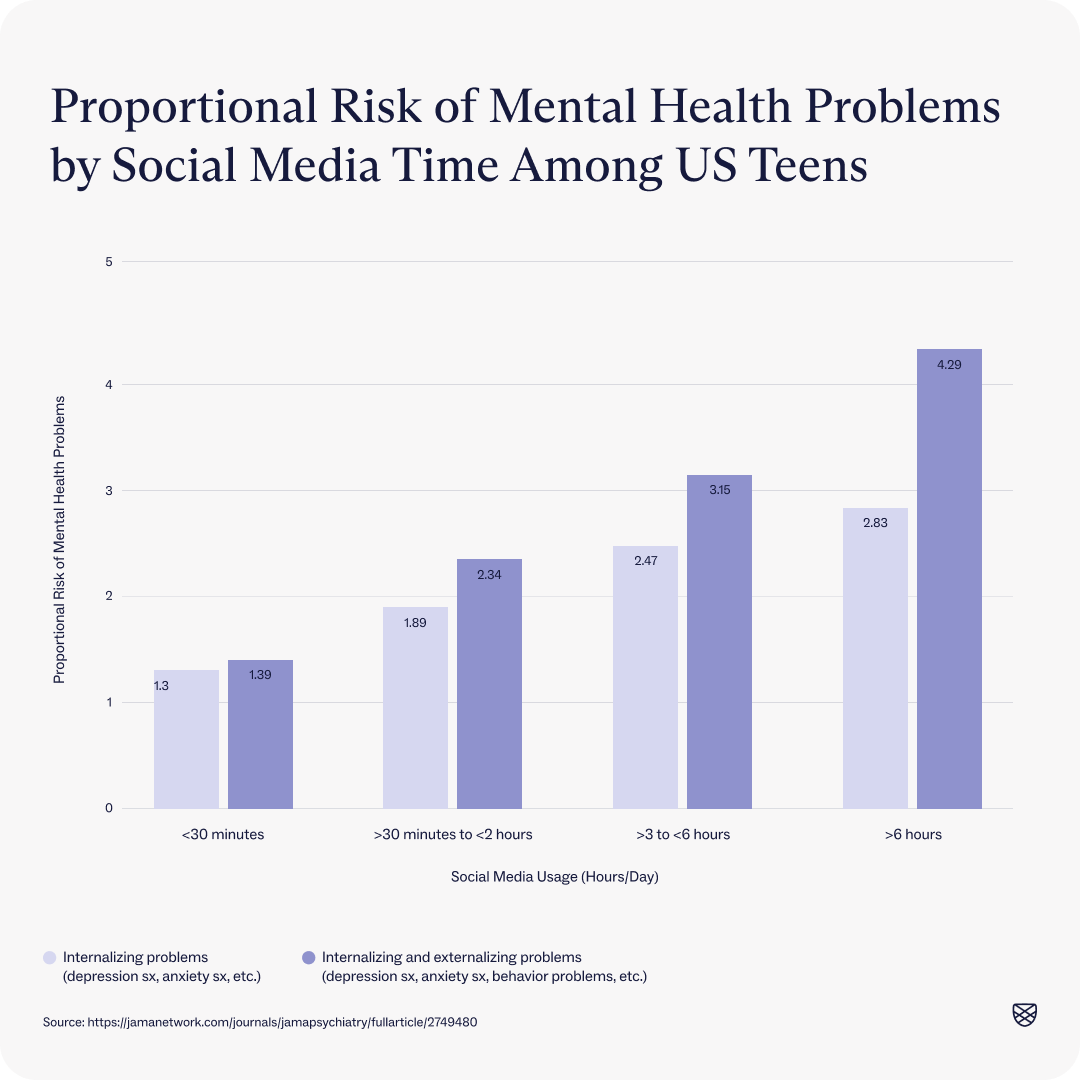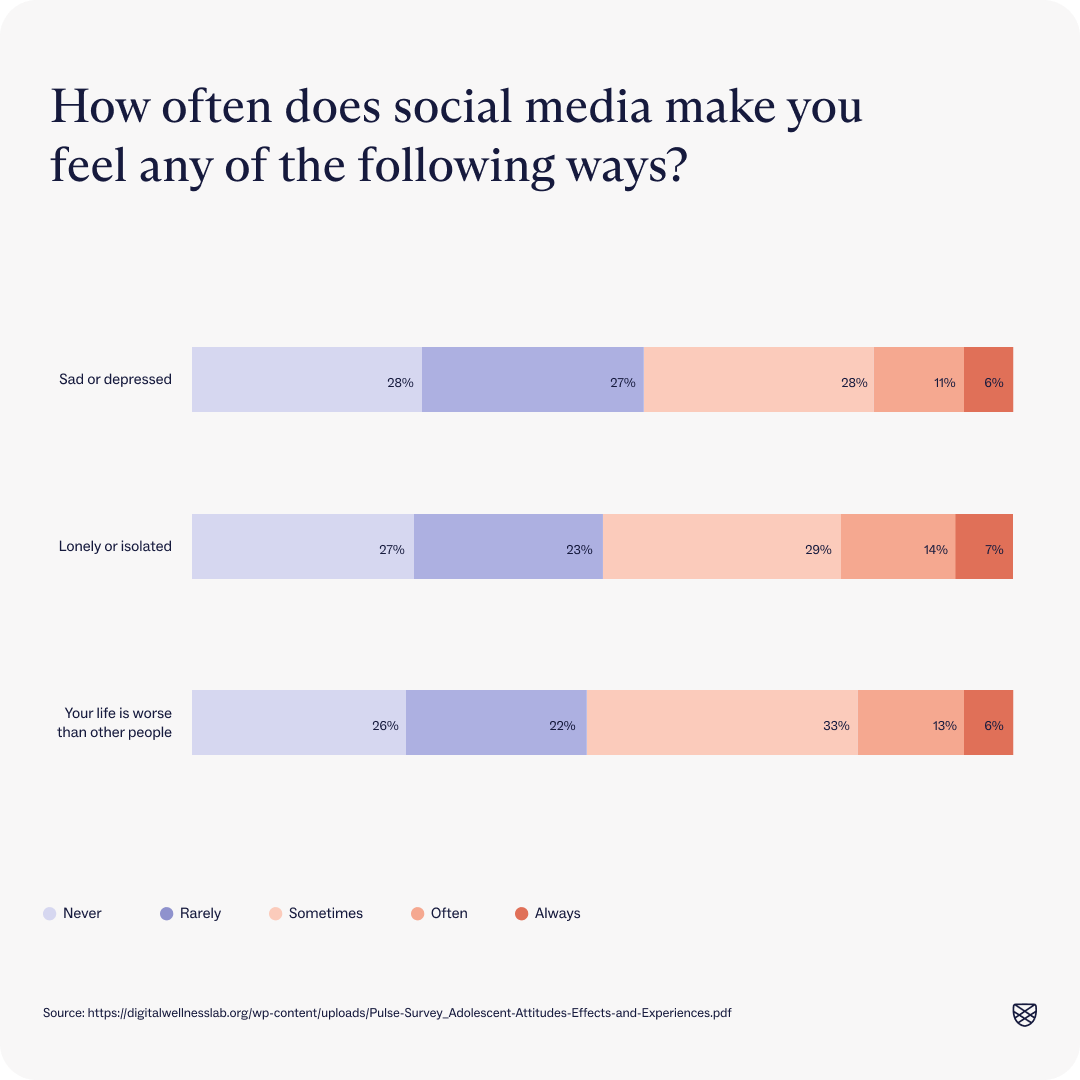
Amid the ongoing youth mental health crisis, experts and parents alike are trying to pinpoint why so many young people are facing mental health challenges. Time and time again, many point to social media as the culprit.
Adolescents spent nearly five hours per day on average scrolling through TikTok, Instagram, YouTube, and Snapchat—more than double the time spent on homework, according to one study. All this screen time has an undeniable impact (for better or worse).
Social media's negative effects on youth mental health have been well-documented, leading the U.S. Surgeon General to issue a warning about its potential harms. Facebook and Instagram executives themselves know about their platforms' ill effects on young people but kept these findings under wraps (though many were recently called to testify before the Senate Judiciary Committee about child exploitation and social media).
Still, various personal and societal factors influence well-being, and the impact of social media on youth mental health isn't cut and dry. At best, social media sites can be a lifeline for young people, especially those with marginalized identities and fewer resources, who find community and agency on the platforms, research shows.
To assess how social media impacts youth mental health, Charlie Health combed through the numbers, looking at data on how social media impacts suicidality and social connection alike. Keep reading to see what the data reveals.

As mentioned, the average teenager spends nearly five hours per day on social media, but more than a half-hour of daily usage alone may increase mental health risks, one study found. The study of over 6,500 adolescents found that spending more than 30 minutes daily on social media was linked to an increased risk of depressive and anxiety symptoms as well as bullying and attention problems. These risks rose with more social media use. Even after adjusting for other factors, spending over three hours daily on social media (which many teenagers do) more than doubled the risk of the aforementioned mental health issues, the study found.
When asked about the impact of social media on their body image for a 2022 study, nearly half of teenagers said social media makes them feel worse. This finding supports others like it, including internal research showing that Instagram worsens body image for one in three teenage girls (which company executives turned a blind eye to). Research published by the American Psychological Association (APA) also observed the opposite effect: Teens and young adults who decreased their social media use by half for a few weeks felt better about their weight and appearance than peers who kept using it regularly.

Between 2010 and 2015, there was a rise in depressive symptoms, suicide-related concerns, and suicide rates among American teenagers, particularly girls, national data shows. Many studies have found these symptoms to be linked to social media use.
One 2017 study that dug into this data found that teens spending more time on social media were at an increased risk for depressive and suicide symptoms. Similarly, in a 2022 report, about half of teens said social media made them feel sad, depressed, lonely, or isolated sometimes, often, or always. A 2018 literature review of nine related studies found that spending more time on social media is linked to increased exposure to and participation in self-harm behavior, along with higher levels of psychological distress and thoughts of suicide among depressed teens.
By contrast, young people engaged in in-person social activities (like sports, homework, reading, and attending religious services) were less likely to report such issues, the 2017 study found.
Young people are increasingly diagnosing themselves with serious mental health issues based on social media content alone. The phenomenon, known as self-diagnosis, can be misleading at best and dangerous at worst for youth mental health, experts say, pointing to the prevalence of misinformation online. For instance, a recent study of ADHD videos on TikTok found that over half were medically "misleading." Also, as experts point out, self-diagnosis can delay a young person from meeting with a licensed mental health professional and getting the correct kind of care.
Despite its well-documented shortcomings, social media can also improve youth mental health in some instances, especially for marginalized youth people.
For instance, LGBTQIA+ young people negotiated and explored identity and obtained support from peers on social media, data shows. Also, about half of young people polled in one study—especially those who are Black and Latino—used social media to make their voices heard in civic engagement contexts. Most broadly speaking, social media can be a source of mental health support, boosting depressed moods in some contexts, one study found.
Above all, it is the responsibility of executives and lawmakers to ensure that social media platforms are safe for teenagers. Below are some other steps that can be taken individually to cultivate healthy social media usage among teens.
Use social media to promote connection
As mentioned, social media can be a source of emotional support and solidarity, including for young people with mental health conditions, data shows. In order to promote these positive effects of social media, though, it's important to encourage young people to adopt positive social media practices—like following empowering people and accounts and unfollowing those promoting harmful practices or opinions.
Set social media boundaries
Establish clear rules and limits on screen time and social media usage, like setting daily time limits and reducing screen time around bed. Also, encourage breaks from social media and promote offline activities. Discussing these (and other) healthy behaviors online can reinforce positive actions in real life.
Know when to get help
If you or a young person in your life is struggling with their mental health or facing significant challenges related to social media use, consider seeking support from a licensed mental health professional.
This story was produced by Charlie Health and reviewed and distributed by Stacker Media.